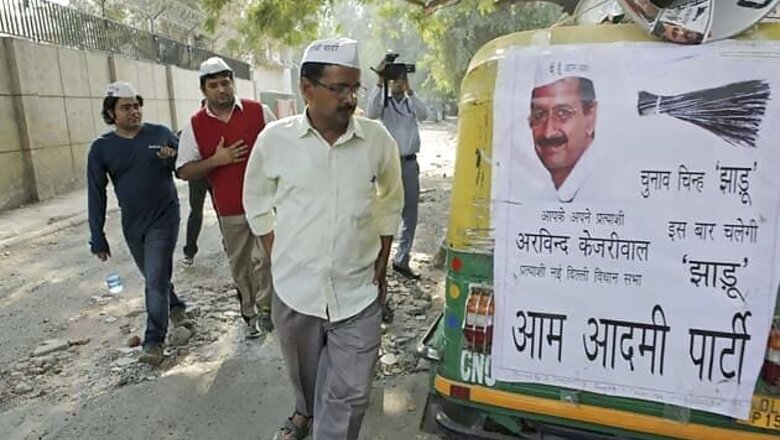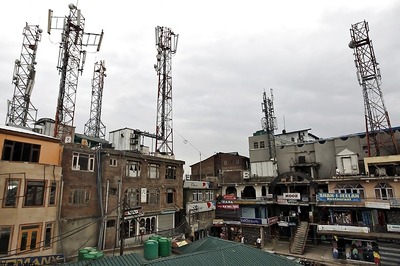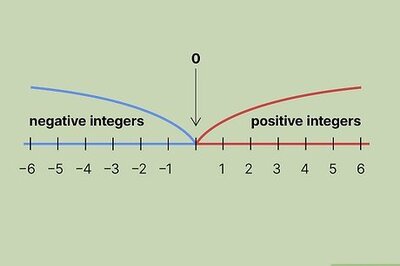
views
New Delhi: Former Maldives president Mohammed 'Anni' Nasheed was Arvind Kejriwal of the tiny island nation in the Indian Ocean a few years ago. He spoke the same language, Arvind Kejriwal speaks today. He was also young like Kejriwal. He was against corruption and authoritarian rule of the then Maldivian president MA Gayoom. Nasheed had no money, no cadre and no powerful backers. All that he had was a dream and promised voters a clean, accountable government in his island nation.
The people of Maldvies, who were fed up of the blatantly corrupt, dictatorial rule of Gayoom saw their saviour in Nasheed. They rallied behind him and donated him their earnings. Nasheed took on the most powerful MA Gayoom in a free election, and proving the skeptics wrong, he won.
Initially his government was clean, efficient and he had endeared himself to the voters. But the euphoria did not last long. Nasheed who had promised the moon to voters soon realised that it is easy to win an election by mobilising the people against the corrupt system, but difficult to remain in power and run the government.
The same people who had backed Nasheed in his fight against corruption started demanding illegal favours from him for their continued support. He had to oblige them just to stay in power. He also became corrupt and authoritarian like his predecessor Gayoom within a few years.
As all of us know, Nasheed was ousted in a military coup two years ago. He recently lost the presidential election to Gayoom's relative. When a journalist asked voters about his downfall, they replied: "Nasheed is an activist. He is good as an opposition leader. He is not good as an administrator. He was a failure as the President. We did not vote for him this time for the same reason."
Here's a lesson for Aam Aadmi Party (AAP) and its founder Arvind Kejriwal. It is admirable that Kerjriwal has created a nationwide awareness about corruption through his high decibel campaigns. He comes across as a simple man with indomitable courage and 'never say die' spirit. The AAP has changed the political discourse in India. It has also shaken the system controlled by big political parties which are indifferent to the problems of the common people.
The AAP claims that Kejriwal has given a voice to the people, the voice that is either suppressed or was too feeble to be heard. The AAP has now emerged as a strong political force in Delhi. Its growing popularity has rattled both the Congress and the BJP and the AAP is even confident of coming to power in Delhi.
So far so good.
The bigger question to be asked is - Can activist Kejriwal be able to administer well?
Administration is not as easy as activism. Activism thrives on chaos and more chaos. It is very easy to condemn an established political system by raising the issues concerning the common people.
It is very easy to organise dharnas, rallies, public meetings and protests against the government and corruption.
But, it won't be easy to be a part of the government and eradicate corruption. When an activist becomes a part of the government, he or she will realise that it is very difficult to deliver the promises and rule.
In the Indian system, the government is actually run by the bureaucracy. It is a permanent government. If elected to power, Kejriwal will have to work with the same bureaucracy, which he holds responsible for the current ineffective, corrupt government. The bureaucracy has its own ways. It can easily sabotage the government's welfare schemes. It can turn the anger of the people against the government.
As all of us know Kejriwal has no proven administrative abilities. What he practices is politics of opposition, politics of playing to the gallery, politics of promises.
If he comes to power, he will surely realise that the running a government is a much tougher job and requires certain skills. The promise of clean government alone won't enable him to stay in power and deliver the promises he made during the polls.
A ruler has to be very pragmatic. 'The holier than thou' attitude, self righteousness and criticism of everything won't work in governance.
For example: the auto drivers in Delhi are the biggest backers of AAP. What is the guarantee that they will not harass passengers once the elections are over? If AAP comes to power and takes on the auto drivers, he will surely lose his vote bank. What I have mentioned here is one of the several dilemmas a ruler has to face in the office.
Is Kejriwal aware of all these things? Does he know how to handle the bureaucracy? Can he handle the demands of voters? Will he be able to strike a fine balance between government and the party?
If AAP comes to power, Arvind Kejriwal will soon realise the difficulties of government. Hopefully, he will also realise that populism is good, when you are in the opposition and the same can ruin a government when you are in power.
Because activism and administration are as opposite as the North and South poles.















Comments
0 comment